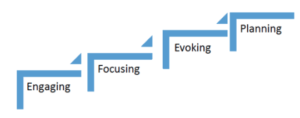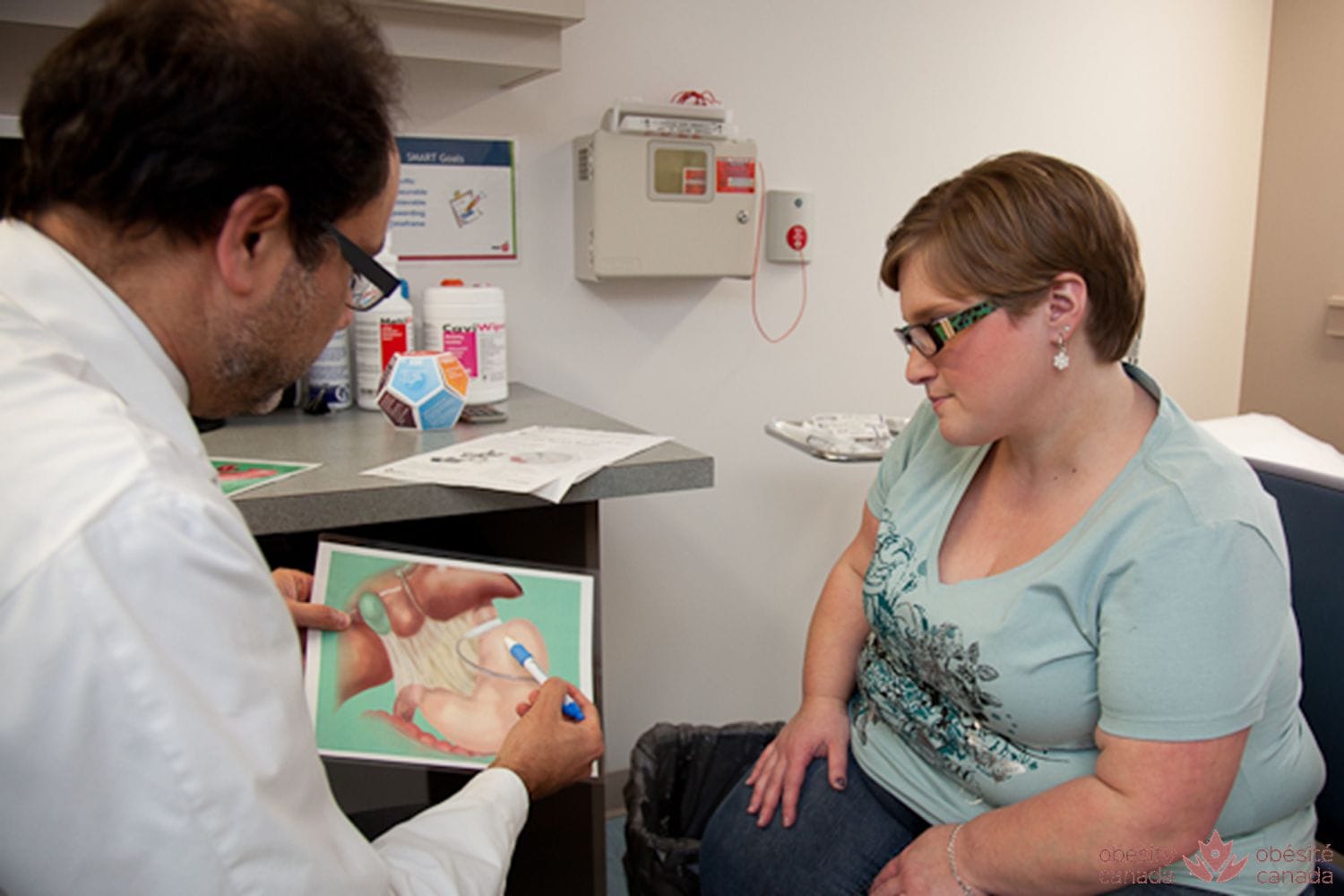Today’s post comes from Nadia Browne. Nadia is a registered dietitian and a PhD student in the Department of Pediatrics at the University of Alberta. She is also the current Vice Chair of the University of Alberta’s CON-SNP and the Chapter Representative of the CON-SNP National Executive. You can find more about Nadia here!
Motivational interviewing (MI) is a collaborative communication style that can help to strengthen a person’s own motivation and commitment to change.1 It is patient-centered and designed to help people explore and express their own reasons for change. When people are ambivalent about making health-related changes, using MI can encourage them to have a conversation about their weight management goals and lead to positive behaviour change.2
To facilitate this behaviour change in pediatric obesity management, healthcare professionals (HCPs) trained in MI frequently incorporate these four core principles:3-5
- Express empathy through reflective listening
- Develop discrepancy between clients’ goals or values and their current behaviour
- Adjust to client resistance rather than opposing it directly
- Support self-efficacy and optimism
Along with the above mentioned principles, HCPs also follow these four processes:1 (1) engaging, (2) focusing, (3) evoking [change talk] and (4) planning to further give patients the autonomy to change their behaviour.

In pediatric obesity management, patients face many challenges in changing their nutrition and physical activity behaviours over the long-term. Such changes are usually necessary to achieve improved weight- and health-related outcomes. Moreover, research has shown that the majority of patients are reluctant to take advice from HCPs when they are instructed on what to do.3 The traditional model of healthcare encourages HCPs to provide advice to patients as a means of encouraging behaviour change; the effectiveness of this approach, however, is not compelling. On the other hand, MI allows HCPs to use a non-judgmental and empathetic tone to help patients find their own motivation thus allowing them to discuss their readiness to change.3
Over the last 15 years, MI has been emerging as a promising approach for the treatment of obesity given its benefits in helping patients change health problems related to lifestyle e.g., nutrition and physical activity.6 Despite these benefits, there are few studies that have investigated the use of MI-based interventions in pediatric obesity management to date.6-9 Nevertheless, the limited research supports the usefulness of MI in enhancing motivation for changing nutrition (healthier eating) and physical activity for pediatric obesity management.
Motivational interviewing has been shown to be an effective strategy for targeting obesity in adolescents. This promising and vital approach in pediatric weight management allows patients to explore their internal motivation and/or reasons for health-related behaviour change. Overtime, with an increase in research on MI-based interventions in the pediatric population and training in MI, HCPs will be able to adapt and use the principles and processes of MI along with other related skills to support behaviour changes in pediatric obesity management.10
References
- Miller, WR, Rollnick S. Motivational Interviewing: Helping People Change. 3rd ed. New York, NY: Guilford Press; 2013.
- Kirk S, Scott BJ, Daniels SR. Pediatric obesity epidemic: treatment options. Journal of the American Dietetic Association. 2005 May 1;105(5):44-51.
- Miller WR, Rollnick S. Preparing people to change addictive behavior. New York, NY: Guilford Press; 1991
- Miller WR, Rollnick S. Motivational Interviewing: Preparing People for Change. 2nd ed. New York, NY: Guilford Press; 2002
- Levensky ER, Forcehimes A, O’Donohue WT, Beitz K. Motivational Interviewing: An evidence‐based approach to counseling helps patients follow treatment recommendations. AJN The American Journal of Nursing. 2007 Oct 1;107(10):50-8.
- Resnicow K, Taylor R, Baskin M, McCarty F. Results of Go Girls: A weight control program for overweight African‐American Adolescent females. Obesity. 2005 Oct 1;13(10):1739-48.
- Berg-Smith SM, Stevens VJ, Brown KM, Van Horn L, Gernhofer N, Peters E, Greenberg R, Snetselaar L, Ahrens L, Smith K. A brief motivational intervention to improve dietary adherence in adolescents. Health Education Research. 1999 Jun 1;14(3):399-410.
- MacDonell K, Brogan K, Naar-King S, Ellis D, Marshall S. A pilot study of motivational interviewing targeting weight-related behaviors in overweight or obese African American adolescents. Journal of Adolescent Health. 2012 Feb 1;50(2):201-3.
- Neumark-Sztainer DR, Friend SE, Flattum CF, Hannan PJ, Story MT, Bauer KW, Feldman SB, Petrich CA. New moves—preventing weight-related problems in adolescent girls: a group-randomized study. American journal of preventive medicine. 2010 Nov 1;39(5):421-32.
- Armstrong MJ, Mottershead TA, Ronksley PE, Sigal RJ, Campbell TS, Hemmelgarn BR. Motivational interviewing to improve weight loss in overweight and/or obese patients: a systematic review and meta‐analysis of randomized controlled trials. Obesity reviews. 2011 Sep 1;12(9):709-23






